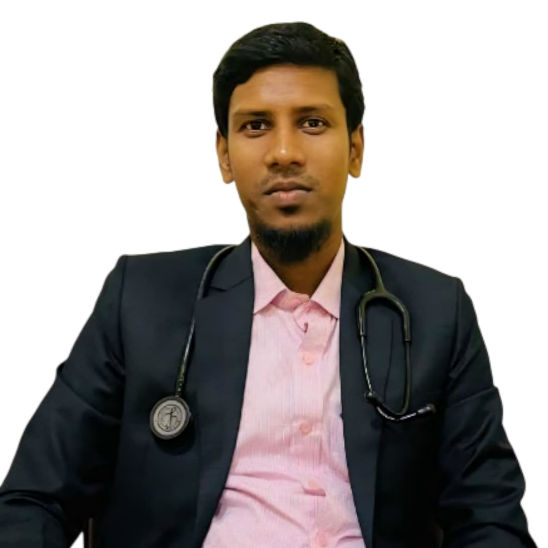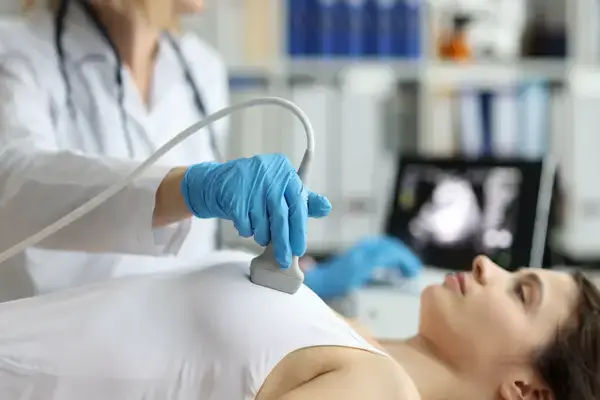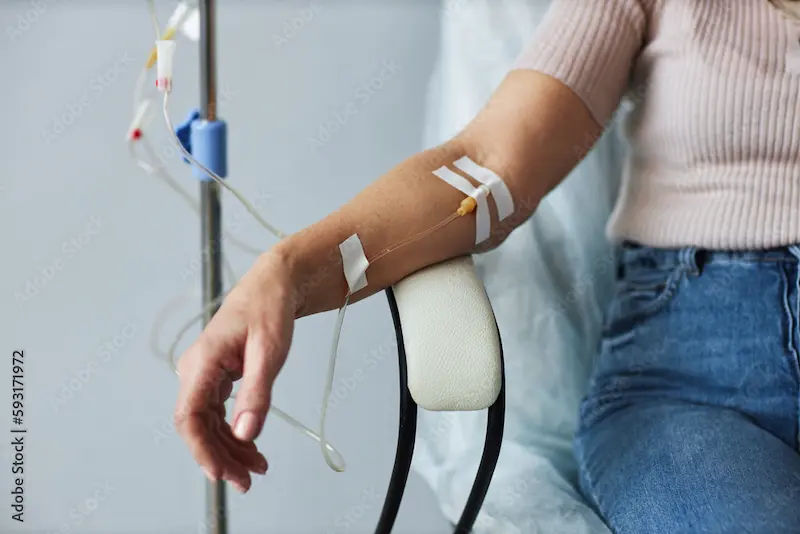Signs Of Signs And Of Most Common Cancers Among Women
Discover the early warning signs of the most common cancers among women — including breast, cervical, ovarian, uterine, lung, and colorectal cancer — to promote timely detection and treatment.

Written by Dr. Dhankecha Mayank Dineshbhai
Reviewed by Dr. Md Yusuf Shareef MBBS
Last updated on 13th Jan, 2026

Every year, millions of women worldwide hear the words, "You have cancer." While the diagnosis can be frightening, knowledge is a powerful form of protection. Understanding the most common cancers that affect women, along with their early warning signs, can be the first and most crucial step toward early detection and successful treatment. This guide isn't meant to alarm you but to empower you. We'll walk through the five most prevalent cancers in women—breast, lung, colorectal, cervical/uterine, and skin cancer—demystifying their symptoms and emphasizing the life-saving importance of screening. Remember, your body often sends signals when something is wrong. Learning to listen to those signals and taking proactive steps with your healthcare provider, such as consulting a doctor online with Apollo24|7 for initial advice, can make all the difference. Let's dive in and turn anxiety into action.
1. Breast Cancer: The Most Common Cancer in Women
Breast cancer occurs when cells in the breast grow out of control. It can affect both women and men, but it is by far the most common cancer diagnosed in women. The good news is that survival rates have improved dramatically due to advances in treatment and, most importantly, early detection.
Early Signs and Symptoms of Breast Cancer
Being familiar with how your breasts normally look and feel is the best way to spot any changes. The most well-known sign is a new lump or mass in the breast or underarm. A painless, hard mass with irregular edges is more likely to be cancerous, but cancers can also be tender, soft, or rounded. However, a lump is not the only sign. Other symptoms include:
Swelling of all or part of the breast (even if no distinct lump is felt)
Skin dimpling or puckering (sometimes resembling an orange peel)
Breast or nipple pain
Nipple retraction (turning inward)
Redness, scaliness, or thickening of the nipple or breast skin
Nipple discharge (other than breast milk), particularly if it's bloody.
Beyond the Lump: Lesser-Known Warning Signs
Many women are surprised to learn that early signs of breast cancer in women can be subtle. Inflammatory breast cancer (IBC), a rare and aggressive form, often does not present with a lump. Instead, symptoms may include a sudden increase in breast size, redness covering more than a third of the breast, and a feeling of heaviness or warmth. Another less common presentation is Paget's disease of the breast, which starts with crusty, scaly, itchy skin on the nipple that may spread to the areola.
Screening and Early Detection is Key
Regular screening is your best defense. A mammogram (an X-ray of the breast) can often find breast cancer before a lump can be felt. Guidelines vary, but many organizations recommend starting annual or biennial mammograms at age 40 or 50. Discuss your personal risk factors with your doctor to create an appropriate screening plan. For women with a family history, additional screening like MRI may be recommended. Knowing how to do a breast self-exam correctly is also a valuable tool for maintaining awareness between clinical exams.
Beyond Smoking
While smoking is the leading risk factor for lung cancer, it's a misconception that only smokers get it. Exposure to secondhand smoke, radon gas, asbestos, and other carcinogens can also increase risk. In fact, rates of lung cancer in women who never smoked are rising, making awareness critical for all.
Recognizing the Symptoms of Lung Cancer
Lung cancer often doesn't cause symptoms in its earliest stages. When signs do appear, they may include:
A persistent or worsening cough (often called a "smoker's cough")
Coughing up blood or rust-colored phlegm
Chest pain that is often worse with deep breathing, coughing, or laughing
Hoarseness
Shortness of breath
Unexplained weight loss and loss of appetite
Feeling tired or weak
Recurring infections like bronchitis or pneumonia.
The Critical Role of Screening for High-Risk Women
For those at high risk (e.g., with a significant smoking history), low-dose computed tomography (LDCT) scans can detect lung cancer early, when it is more treatable. If you have a persistent cough accompanied by any of these symptoms, it's essential to get it checked out. If symptoms persist beyond two weeks, consult a doctor online with Apollo24|7 for further evaluation to determine if an in-person visit or imaging is necessary.
Consult an General Physician
3. Colorectal Cancer: A Preventable and Detectable Cancer
Colorectal cancer (cancer of the colon or rectum) is the third most common cancer in women. It often begins as a small, non-cancerous clump of cells called a polyp. Over time, some polyps can become cancerous. This slow progression is what makes screening so effective, as polyps can be found and removed before they turn into cancer.
What Are the Signs of Colorectal Cancer?
Symptoms can be subtle and easily mistaken for other conditions, which is why screening should not be based on symptoms alone. Be aware of:
A persistent change in your bowel habits, including diarrhea, constipation, or a change in stool consistency
Rectal bleeding or blood in your stool (which may appear bright red or very dark)
Persistent abdominal discomfort, such as cramps, gas, or pain
A feeling that your bowel doesn't empty completely
Unexplained weakness or fatigue
Unintended weight loss.
Why Age-Based Screening is Non-Negotiable?
The most common question is, "what age should you get a colonoscopy?" The general guideline is to start regular screening at age 45. However, if you have a family history or other risk factors, your doctor may recommend starting earlier. A colonoscopy is the gold standard, as it allows for both visualization and polyp removal. Other tests, like stool-based tests, are also available. Discuss the best option for you with your healthcare provider.
4. Cervical and Uterine Cancers: Gynecological Health Matters
These cancers affect the female reproductive system and have distinct causes and symptoms.
Cervical Cancer: Often Silent Until Advanced
Cervical cancer is almost always caused by persistent infection with high-risk types of the human papillomavirus (HPV). In its early stages, it typically causes no symptoms. As it advances, warning signs may include:
Vaginal bleeding after intercourse, between periods, or after menopause
Unusual vaginal discharge, which may be watery, bloody, or have a foul odor
Pelvic pain or pain during intercourse.
The widespread use of the Pap test (or smear) and the HPV vaccine has significantly reduced cervical cancer rates. The Pap test can find pre-cancerous changes in cells, allowing for treatment before cancer develops.
Uterine (Endometrial) Cancer: The Most Common Gynecologic Cancer
This cancer starts in the lining of the uterus (the endometrium). Its most common symptom is a major red flag: abnormal vaginal bleeding. This includes bleeding after menopause, spotting or bleeding between periods, and unusually heavy or prolonged menstrual bleeding. Other symptoms can include pelvic pain or unexplained weight loss. If you experience any postmenopausal bleeding or significant changes to your cycle, it is crucial to see a gynecologist promptly.
5. Skin Cancer (Melanoma): Sun Safety is Not Just Cosmetic
Melanoma is a less common but more dangerous form of skin cancer that can spread to other organs. It can develop anywhere on the body, even in areas not exposed to the sun.
The ABCDEs of Melanoma Detection
The ABCDE rule is a simple guide to help you identify potential warning signs of melanoma in a mole or new skin growth:
Asymmetry: One half of the mole doesn't match the other.
Border: The edges are irregular, ragged, or blurred.
Color: The color is not uniform and may include shades of brown, black, pink, white, or blue.
Diameter: The spot is larger than 6 millimeters across (about the size of a pencil eraser), although melanomas can be smaller.
Evolving: The mole is changing in size, shape, or color.
Any new, changing, or unusual skin growth should be evaluated by a dermatologist.
Your Body, Your Advocate: When to See a Doctor?
The most important message is to know your body and trust your instincts. If you notice any persistent or unexplained changes, do not ignore them. While these symptoms can often be caused by conditions other than cancer, it is always better to err on the side of caution. If your condition does not improve after trying simple methods, book a physical visit to a doctor with Apollo24|7 for a thorough examination. Early intervention is the cornerstone of successful cancer treatment.
Conclusion: Empowerment Through Awareness
Knowledge truly is power when it comes to your health. While reading about cancer can feel overwhelming, the goal is not to live in fear but to live with awareness. By familiarizing yourself with the signs of the most common cancers among women, you become an active participant in your own well-being. You are your own best advocate. Schedule your routine screenings, discuss any concerns openly with your doctor, and adopt healthy lifestyle habits that can lower your risk. Share this information with the women in your life—your mothers, sisters, and friends. Together, through vigilance and proactive healthcare, we can change the narrative around cancer from one of fear to one of empowerment and early action.
Consult an General Physician
Consult an General Physician

Dr Churchil Gupta
General Practitioner
2 Years • MBBS
Greater Noida
Vedant Clinic, Greater Noida

Dr. Anamika Krishnan
General Practitioner
11 Years • MBBS, DNB (Paediatrics) ,Diploma in child Health
Bengaluru
UMC (United Medical Center), Bengaluru

Dr. Mainak Baksi
General Practitioner
13 Years • MBBS , MD (MPH)
Howrah
Mainak Baksi Clinic, Howrah
(50+ Patients)

Dr. Moumita Roy
General Physician/ Internal Medicine Specialist
8 Years • MBBS , MD (Anesthesiology)
Kolkata
VDC Clinic, Kolkata

Dr. Arif Ahmed
General Physician/ Internal Medicine Specialist
9 Years • MBBS, MD (Genl. Med.)
Kolkata
MCR SUPER SPECIALITY POLY CLINIC & PATHOLOGY, Kolkata
More articles from Cancer
Frequently Asked Questions
1. What are the most common first signs of cancer in women?
There is no single 'first sign,' as it depends on the cancer type. However, common early warnings across different cancers include unexplained weight loss, persistent fatigue, a new or changing lump, unusual bleeding (especially post-menopausal), and persistent changes in bowel or bladder habits.
2. I have a family history of breast cancer. What should I do?
Speak with your doctor or a genetic counselor. They can assess your personal risk based on your family history and may recommend starting mammograms earlier, having them more frequently, or adding supplemental screening like a breast MRI. They can also discuss the possibility of genetic testing.
3. Can young women get these cancers?
Yes, while the risk increases with age, cancers like breast, cervical, and melanoma can and do occur in younger women. This is why awareness of your body and any changes is important at every age. HPV vaccination, for example, is recommended for preteens to prevent future cervical cancers.
4. How can I reduce my risk of getting cancer?
While not all cancers are preventable, you can significantly reduce your risk by: not smoking, maintaining a healthy weight, exercising regularly, eating a diet rich in fruits and vegetables, limiting alcohol, protecting your skin from the sun, and getting vaccinated (e.g., HPV vaccine).
5. I'm experiencing symptoms but I'm scared to see a doctor. What should I do?
It's completely normal to feel anxious. However, remember that most symptoms are caused by conditions other than cancer. Seeing a doctor provides clarity. Finding a problem early, when it's most treatable, offers the best possible outcome. Consulting a doctor online with Apollo24|7 can be a less intimidating first step to discuss your concerns from the comfort of your home.



